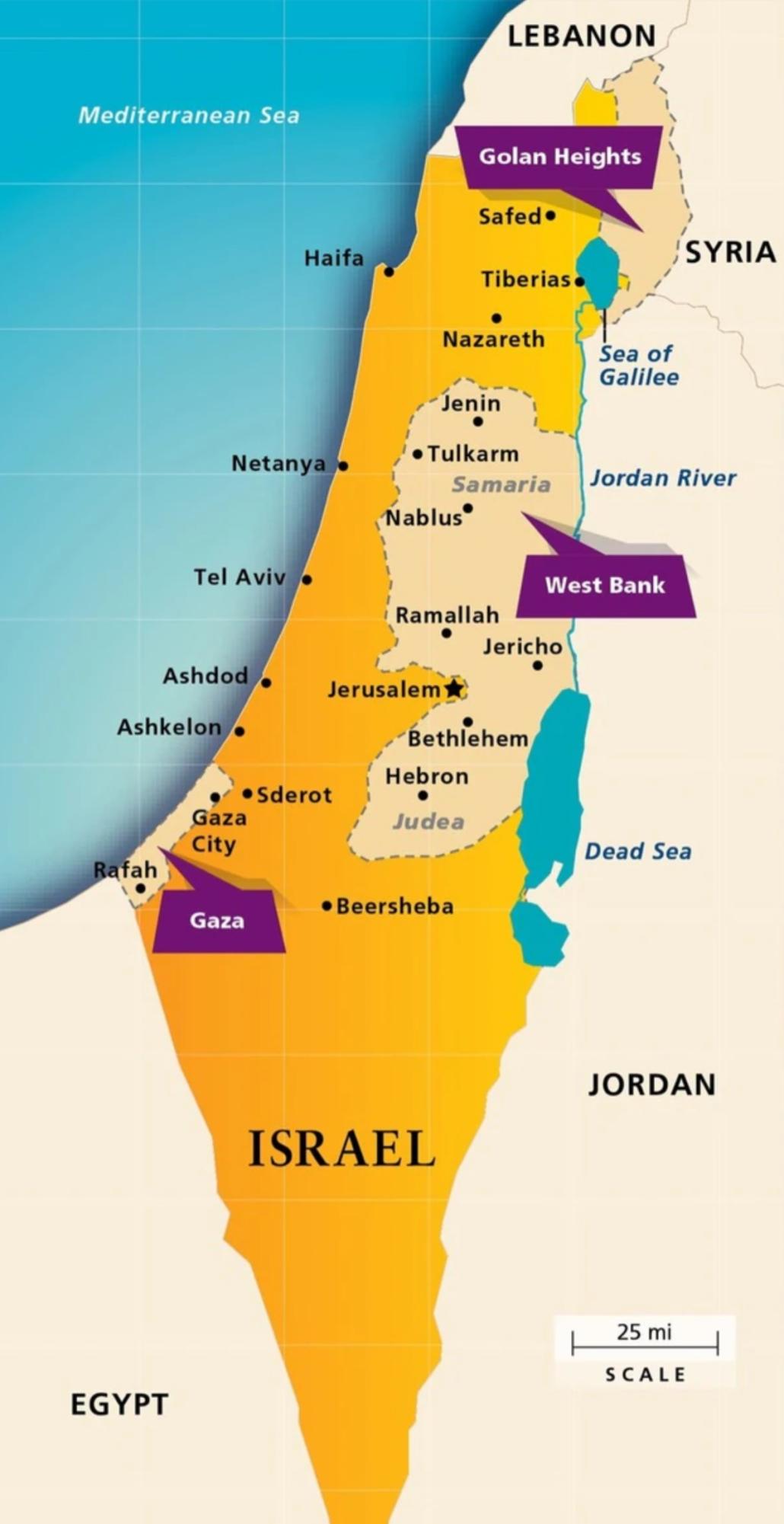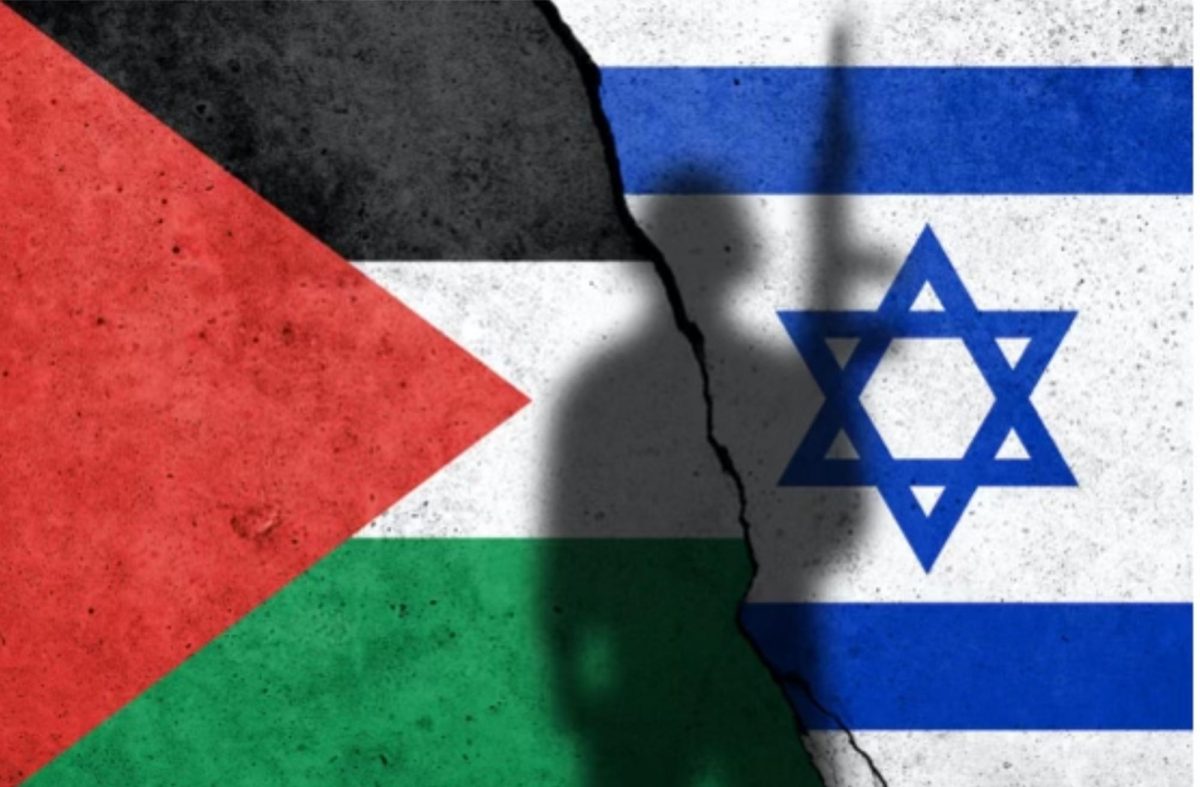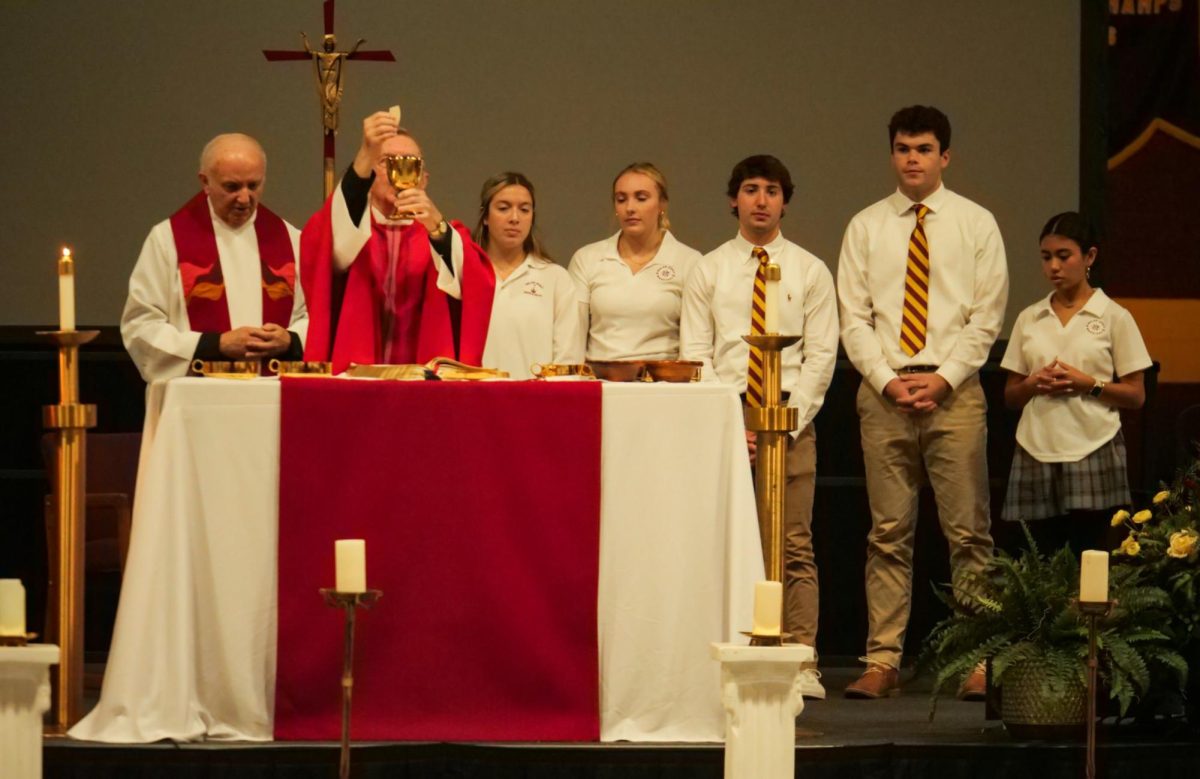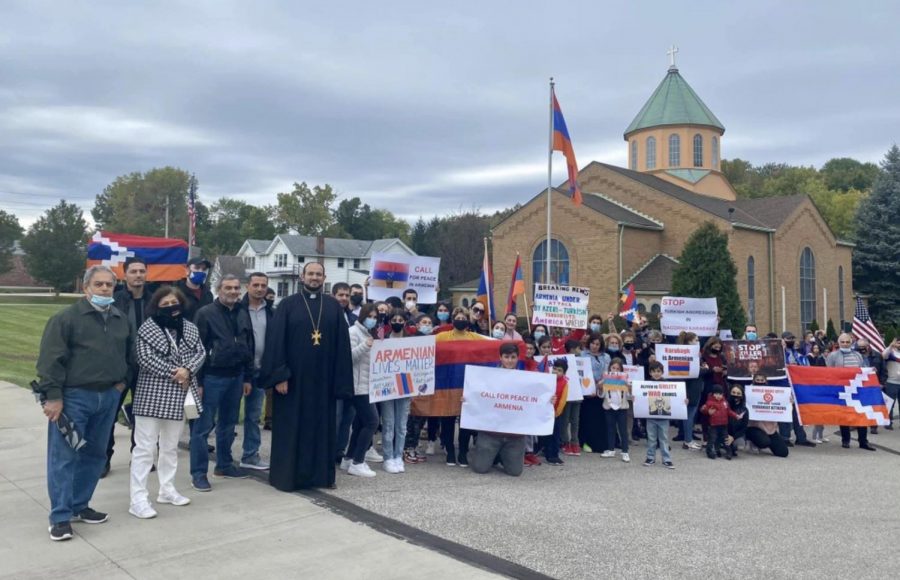The Israeli-Palestinian conflict, raging more than 70 years, has become an inescapable topic both globally and within Walsh Jesuit’s hallways and classrooms. The attacks earlier this month have surfaced this again with many questions ranging from “what is the conflict even all about?” to “which side is absolutely right?”
“It’s something we hear about often in the news, but I’ve always felt I only got a surface-level understanding. It’s like having the pieces of a puzzle but not knowing how they fit together,” junior Michael McFeature remarked.
When asked for some context, history teacher Mr. Andy Kerr noted, “The conflict has a long history that started many years ago. In 1948, the British came up with an idea that the Jewish people would have a nation set aside in a land dominated by a majority of Arab Muslims. A war immediately broke out because the native Muslims did not want a new nation in their land. At the end, Israel ended up having more land than they originally bargained for. This displaced many Palestinians in the nation during the year of 1967.”
Fast forwarding to modern times, on October 7, 2023, Hamas, a Palestinian faction, orchestrated a series of coordinated attacks in Israeli territory. This marked one of the most aggressive assaults in recent memory. In retaliation, Israel declared war on Hamas, launching a series of air bombardments on Gaza.
Junior Christian Medina commented on the recent developments, stating, “Hamas’s tactics during their invasion plainly show characteristics associated with terrorist groups.” Acknowledging the complexity, he also sees the violent actions of both sides as not being the best course of action.
Recent events have intensified these tensions. According to the latest New York Times update, large-scale strikes have been reported against Hamas, resulting in tragic losses on both sides. President Biden, during his visit to Israel amidst this turmoil, stated, “In Israel, I saw a people who are strong, determined, resilient, and also angry, in shock, and in deep, deep pain.” He went on to condemn the acts of Hamas, pointing to their aggressive stance in the conflict.
Sophomore Brianna Gamez chimed in, saying, “When our leaders voice such ideas and take stands like this, it highlights the importance of the situation.” President Biden was also quick to emphasize the distinction between Hamas and the larger Palestinian populace: “We mourn every innocent life lost. The actions of Hamas terrorists don’t take away from the humanity of innocent Palestinians who desire peace.”
Abby LaGuardia, a freshman, shared her perspective: “The Jewish people originally came and took the land, then the Muslims were not okay with it and eventually fought them.” She admitted her limited knowledge of the matter and desire to learn more. Brianna echoed a similar sentiment: “I just know that the two have gotten into conflicts before, and I’m pretty sure Palestine uses terrorism as a weapon.” Her statement showcases the varied understanding among students and the need for further education and dialogue.
Junior Cooper Kernicki, sharing this desire to learn more, said, “I’d love to educate myself on the issue.” This sentiment highlights a shared desire among students for a deeper understanding of this topic as its chronic tensions continue.
Senior Sean Spicer, offering a final reflection, said, “At its core, it’s about people. Strip away the politics, and you witness individuals longing for peace, stability, and a hopeful future.”
Want to dig a bit deeper into the incredibly complex, constantly evolving situation? Here is a bit more to think about. Mr. Kerr shared these ideas for further consideration:
Many look at Israel’s historical treatment of Palestinians generally, and with Gaza in particular, as the reason why these attacks happened. That does not excuse or justify the horrible acts by Hamas. It also, many believe, does not give Israel the right to bomb and attack indiscriminately, with no regard for innocent lives. This is the framework of the moral debate that is going on across the world right now as nations and individuals respond in so many ways. From protests and editorials to conversations around the dinner table, these issues are gripping the world’s attention now.
The US is probably Israel’s closest global ally. We provide them with a large amount of military aid and technology and rely on them to be a strong partner in an often-volatile region of the world (The Middle East). This makes the moral debate even more significant for us here at school and beyond.



![It is in giving that we receive [Opinion]](https://thepioneerwjhs.com/wp-content/uploads/2024/03/IMG_6538-1200x504.jpeg)

![War in Ukraine horrifies school community [Opinion]](https://thepioneerwjhs.com/wp-content/uploads/2022/03/9C7A948F-24DE-4E28-9E55-8707ADBC38B9-900x506.jpeg)


Lisa Baylor • Oct 31, 2023 at 12:32 pm
Wow, you have shared a very important and timely article. You wrote this very well and provided quotes from Mr. Kerr that help support our understanding. Thanks.